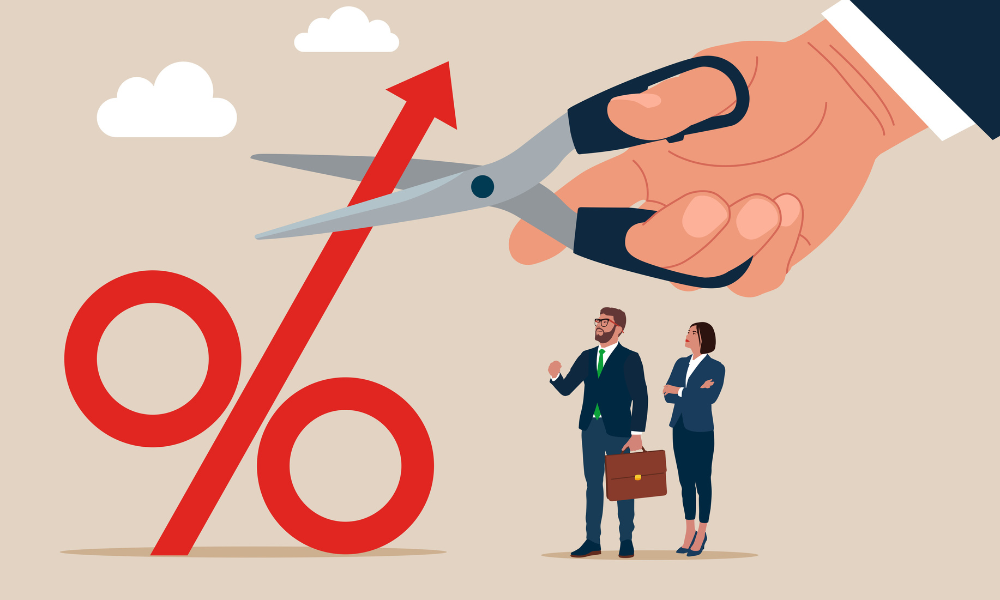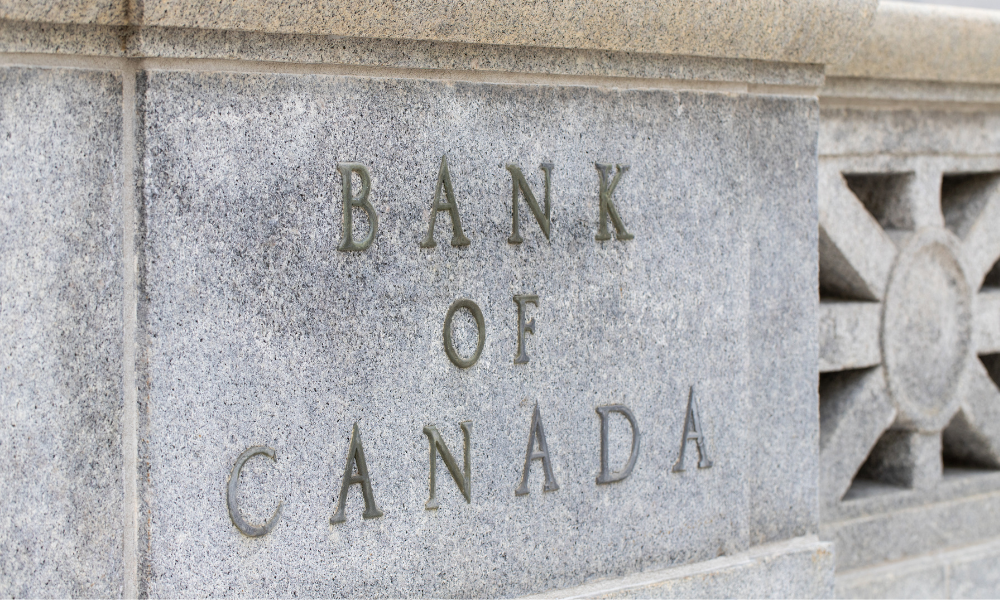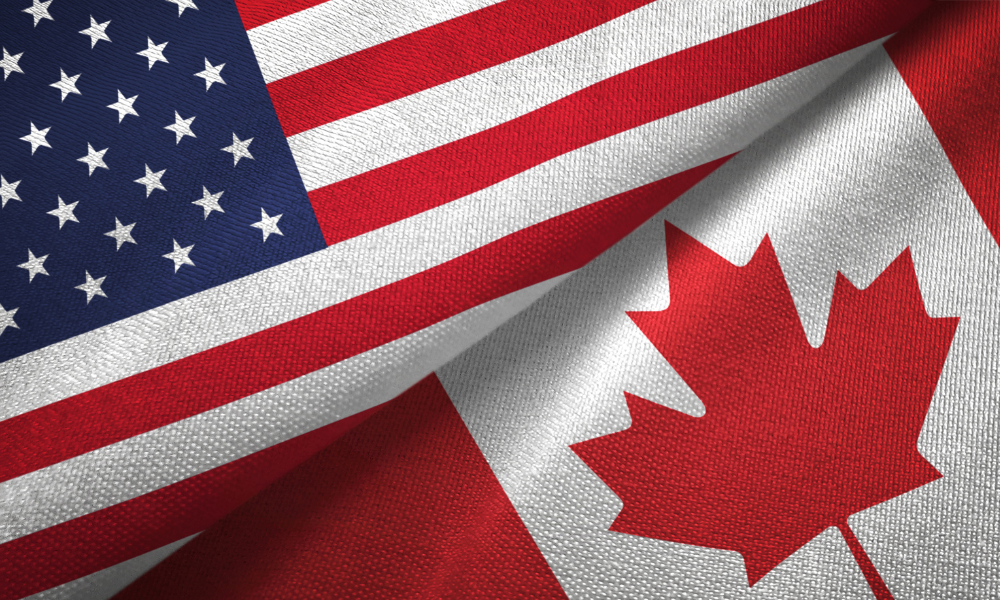Trudeau and Trump delay tariffs as Canada commits to fentanyl measures, but economic uncertainty remains

Canada and the United States have agreed to a 30-day pause on tariffs, temporarily averting a trade war that threatened economic stability in North America.
According to BNN Bloomberg, the delay follows discussions between Prime Minister Justin Trudeau and US President Donald Trump, as both leaders sought to address concerns related to border security and drug trafficking.
Trump confirmed the pause on Truth Social, stating, “I am very pleased with this initial outcome, and the Tariffs announced on Saturday will be paused for a 30-day period to see whether or not a final Economic deal with Canada can be structured.”
Trudeau also posted Monday on X that the pause would occur “while we work together.”
I just had a good call with President Trump. Canada is implementing our $1.3 billion border plan — reinforcing the border with new choppers, technology and personnel, enhanced coordination with our American partners, and increased resources to stop the flow of fentanyl. Nearly…
— Justin Trudeau (@JustinTrudeau) February 3, 2025
Canada committed to appointing a ‘Fentanyl Czar,’ designating Mexican cartels as terrorist organizations, and launching a Canada-US Joint Strike Force to combat organized crime and money laundering.
Mexico secured a similar agreement after President Claudia Sheinbaum pledged to reinforce its northern border with 10,000 members of the National Guard to prevent drug smuggling.
According to The Associated Press, the US also committed to working on stopping the flow of high-powered firearms into Mexico.
While the trade war feared by investors, companies, and political leaders now seems less likely to erupt, Trump has indicated that new tariffs against the European Union could be announced soon.
The Associated Press reported that White House officials were instructed to prepare a detailed report on import taxes for EU goods.
Public Safety Minister David McGuinty credited the temporary pause on tariffs to intense lobbying efforts in Washington. “We’ve just stayed at this. We’ve always believed...we could find our way forward, and it looks like we have,” McGuinty said on CTV News Channel.
Conservative Leader Pierre Poilievre urged the government to use the 30-day window to strengthen Canada’s economy and prevent the tariffs from returning.
Like Canadians across the country, Conservatives are relieved to hear that there will be a one month pause on tariffs from the United States that would have hurt workers, families and businesses on both sides of the border.
— Pierre Poilievre (@PierrePoilievre) February 3, 2025
But this is not a time to sit back. We must urgently…
“But this is not a time to sit back,” Poilievre said. “We must urgently work to strengthen Canada’s economy and do everything we can to ensure these tariffs are never brought in.”
Unifor President Lana Payne called Trump’s tariff announcement “a turning point for our country,” warning that the 30-day pause should not lead to complacency.
“As a country, we must use the days ahead to continue to bring Canadians together, to plan for a potential trade war, and to use every single available lever to build a strong, resilient, and diverse economy,” she said, according to BNN Bloomberg.
Bob Rae, Canada’s Ambassador to the UN, highlighted the fragility of North America's free trade agreements. “We have to keep on negotiating in good faith,” Rae told CTV News.
However, he warned that any of the three countries in the trade agreement—Canada, the US, and Mexico—could slow down trade, causing significant economic disruptions.
“That is the underlying reality of our situation in Canada, and we’re not without the means to respond, as we’ve demonstrated,” Rae added.
The Associated Press reported that financial markets initially reacted negatively to the tariff announcement, with the S&P/TSX Composite Index in Toronto falling 2.58 percent and the S&P 500 Index in New York declining by 1.37 percent.
However, markets showed signs of stabilization following news of the tariff pause.
Trade organizations also voiced concerns about the broader economic impact.
According to BNN Bloomberg, Restaurants Canada CEO Kelly Higginson said that some food items could face multiple layers of tariffs depending on where they were processed.
“We do have a lot of our suppliers who are scrambling, canceled trucks coming into the country today filled with produce to feed Canadians,” Higginson stated.
Cryptocurrency markets were also affected.
Bitcoin fell below US$100,000 following Trump’s tariff announcement, reaching a low of approximately US$92,000 before rebounding, as reported by The Associated Press.
Provinces reacted swiftly to the tariff threats.
BNN Bloomberg reported that Ontario Premier Doug Ford announced the province would halt all retaliatory measures following the 30-day tariff delay but cautioned that the threat remained.
“President Trump will continue to use the threat of tariffs to get what he wants,” Ford said.
He also stated that Canada and the US should focus on competing with China rather than engaging in a trade dispute.
Multiple provinces took action against US goods. Quebec and Manitoba joined British Columbia and Ontario in removing American liquor products from their shelves.
The Associated Press confirmed that the LCBO, which controls liquor distribution in Ontario, would cease selling US alcohol, a move that could impact nearly $1bn worth of imports annually.
According to BNN Bloomberg, independent grocery chains in Canada have also begun labeling domestically produced goods more prominently, encouraging consumers to ‘buy Canadian’ amid the tariff uncertainty.
Some retailers have suggested that if demand for Canadian goods increases, they may reduce imports of American products.
Despite agreeing to a temporary tariff pause, Trump remained firm on his broader trade stance.
The Associated Press noted that Trump continues to view tariffs as a critical tool for addressing what he perceives as unfair trade practices.
“Tariffs are very powerful both economically and in getting everything else you want,” he told reporters.
Trump also reiterated his longstanding desire for Canada to become a US state.
According to BNN Bloomberg, he stated, “If people wanted to play the game right, it would be 100 percent certain that they would become a state.”
The next few weeks will determine whether Canada and the US can reach a lasting agreement or if North America will face an escalating trade conflict.



